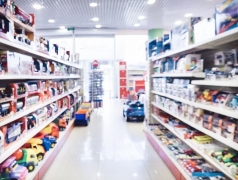Archived article
Please note that tax, investment, pension and ISA rules can change and the information and any views contained in this article may now be inaccurate.

Consumption practically ground to a halt in May, with large swathes of the country shut down due to the Covid-19 lockdown. Another drop in inflation was an inevitable consequence and the fall to 0.5% takes CPI inflation to its lowest level for four years and is a stark contrast to the 2% inflation we were seeing this time last year.
A further fall in petrol and diesel prices in May means that transport costs reduced as prices at the pump dropped. This was despite a rebound in oil prices during the month, but as most forecourts remained empty due to people not using their cars during lockdown, fuel prices didn’t rise.
We appear to have stopped stockpiling toys and games to entertain children during lockdown, as the price of these goods dropped in the month after a rise in April – which helped to drag the inflation rate down.
However, offsetting this has been a rise in food and drink costs, as we are all having to eat and drink every meal at home and so spending more money at the supermarket. In particular, some of these rises come from treats many people are buying from cake to chocolate or posh crisps.
The ONS is still struggling to actually get hold of prices for many items during lockdown, as entire industries are shut and the high-street hadn’t re-opened in May. To help tackle this it has come up with a ‘Coronavirus inflation measure’, with a new basket of goods to reflect what we’re actually all spending our money on.
This basket excludes items that people can’t physically buy but also adjusts for the changes to our lifestyles – for example reducing the weighing to petrol and diesel as the nation uses its cars less. While it’s only experimental it may give a better reflection of the actual inflation we’re all seeing while we sit at home. In reality though, every individual’s inflation basket would look different depending on their spending, even during normal times but especially during lockdown.
These articles are for information purposes only and are not a personal recommendation or advice.

